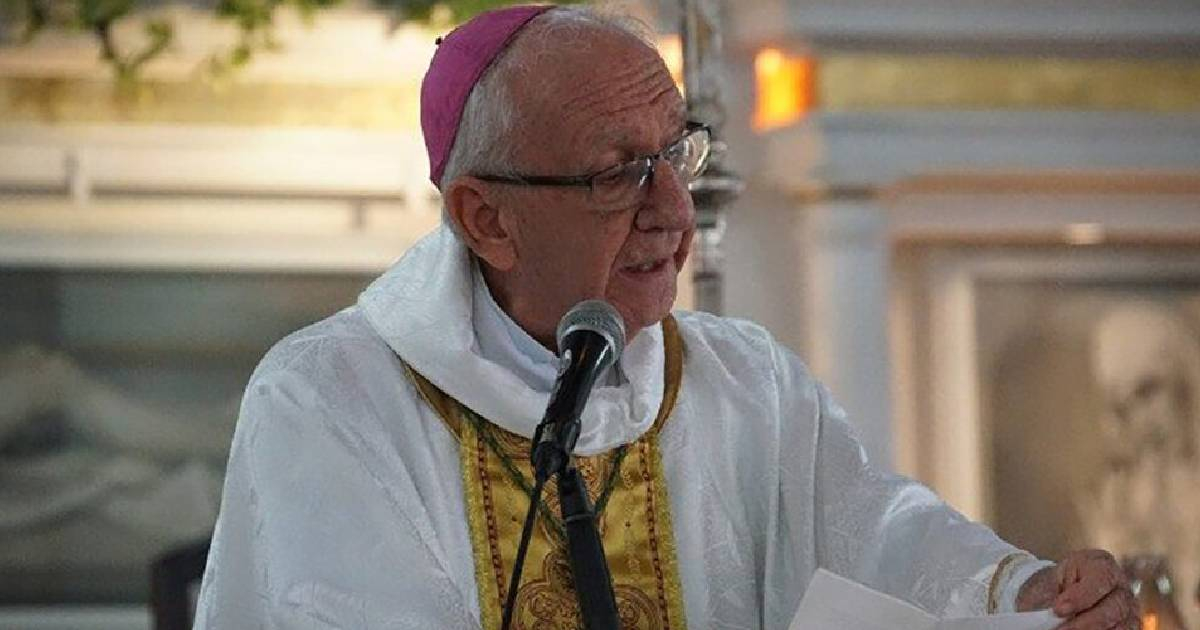"The current situation is worse than what we experienced in the 90s during the so-called 'Special Period,'" said Bishop Emilio Aranguren of Holguín regarding the state of Cuba. Speaking to Spanish Catholics, he made an urgent plea about the widespread crisis on the island. Aranguren described this as the "worst moment" in his extensive pastoral life. The bishop spoke via videoconference with Spanish journalists to support the campaign "The Church in Cuba, Where Nothing is Impossible," as reported by MDZ.
"There is a severe shortage of basic necessities, which are only available at exorbitant prices," the bishop pointed out, aiming to raise awareness among his listeners to support the Cuban cause. He also addressed the issue of medicine shortages. "There are many challenges in finding the necessary medication for conditions like dementia, making life very difficult for the patients and those around them," he added.
Aranguren highlighted the numerous daily challenges faced by Cubans and emphasized the crucial support provided by priests. He noted that there are relatively few priests in Cuba, who often have to travel long distances to serve their communities. He described the situation of the Cuban Church as one of limited resources, relying mainly on contributions from the faithful, which are significantly reduced in the current economic climate.
The Pontifical Foundation Aid to the Church in Need (ACN) is promoting an aid initiative in Spain to collect donations aimed at "supporting priests and religious in their survival" and providing "material means for them to carry out their pastoral and evangelization work," explained José María Gallardo, director of ACN Spain.
The Catholic Church in Cuba has a total of 374 priests, making it the country with the highest number of Catholics per priest, averaging 20,872 faithful per presbyter. Additionally, most religious figures, including 490 nuns and 173 monks, are foreigners. There are only 27 seminarians across the country, meaning the fundamental support of the Cuban Church comes from 3,699 laypeople, who sometimes open their own homes to establish small chapels for celebrating the Eucharist.
Amid the escalating crisis facing the Cuban people, the church has also suffered its consequences. According to the Catholic Information Agency, at least 50 cases of theft and vandalism in 34 parishes and religious houses in Cuba have been reported since March 2023, mostly in Havana, with no action taken by authorities to stop the phenomenon. The Catholic Church in Cuba has even struggled with the supply of communion wafers due to the country's flour shortage.
Several Cuban priests have spoken out to warn about the scarcity affecting the Cuban people. One such priest, Father Lester Rafael Zayas Díaz, delivered a homily on December 24, Christmas Eve, at the Sacred Heart of Jesus Parish, where he expressed his uncertainty about what to say to a people living in darkness and despair. "I confess something to you; perhaps this homily is the hardest one for me to deliver since I began my priestly ministry. What can be said to a hopeless people in the light of the Gospel of Jesus Christ?" the priest pondered.
Understanding the Crisis in Cuba
To further comprehend the current crisis in Cuba and the challenges faced by the Catholic Church, here are some frequently asked questions and their answers.
What is the "Special Period" referred to by Bishop Aranguren?
The "Special Period" was a time of severe economic crisis in Cuba during the early 1990s, following the collapse of the Soviet Union, which had been a major economic supporter of the island.
How are the current shortages affecting daily life in Cuba?
The current shortages of basic necessities, including food and medicine, are making daily life extremely difficult for Cubans. Essential items are often available only at very high prices, exacerbating the hardship.
What role does the Catholic Church play in supporting Cubans?
The Catholic Church provides crucial support through its priests and laypeople, who offer spiritual guidance and material assistance. However, the Church itself faces significant challenges due to limited resources and the current economic crisis.
